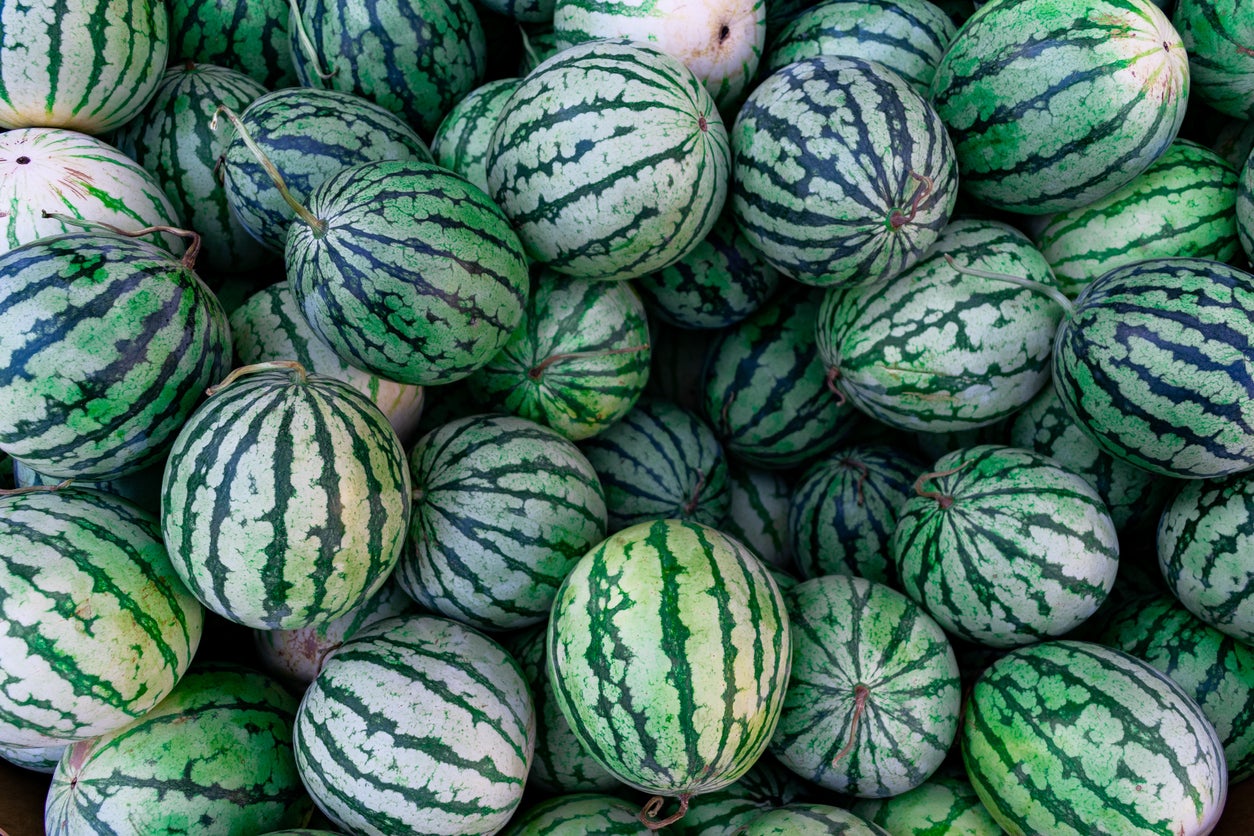Yellow Doll Watermelons – Learn About Yellow Doll Watermelon Care


Sign up for the Gardening Know How newsletter today and receive a free copy of our e-book "How to Grow Delicious Tomatoes".
You are now subscribed
Your newsletter sign-up was successful
For an early, compact, and delicious melon, it’s hard to beat Yellow Doll watermelons. As an added bonus, these melons have a unique, yellow flesh. The flavor is sweet and tasty and the fruits are a manageable size. And, you’ll get ripe, ready-to-eat watermelons long before any other varieties.
What is a Yellow Doll Melon?
Watermelon is a classic summer fruit that nearly everyone enjoys, but handling the large fruit can be difficult or impossible. With Yellow Doll watermelon plants, you get fruits that weigh no more than five to seven pounds (2.2 to 3.2 kg.), a size that anyone can manage. And, these are among the earliest of watermelons, so you can enjoy them sooner in the summer. These are also attractive melons that grow on compact vines. You’ll get medium-sized, oval watermelons that are strikingly striped in light and dark green. The rind is thin, which makes them poor for shipping or storing for very long, but for home gardens it doesn’t matter. The most noteworthy feature of Yellow Doll watermelon plants is, of course, the fact that the flesh is bright, sunny yellow. The melons taste great too, with a sweet flavor and a dense texture. You can eat these as you would any watermelon with the added bonus of being able to add a new and interesting color to fruit salads and desserts.
Growing Yellow Doll Watermelon Plants
Watermelon is best started indoors if you are working from seeds. Transplant them outdoors well after the danger of frost has passed. They definitely need full sun, so be sure you have the right spot for them in your garden. Enrich the soil first with compost and make sure it drains well. Yellow Doll watermelon care is not too labor intensive. Once you have your transplants in the ground in raised beds or hills, water them regularly. Use fertilizer a few times throughout the growing season and be ready to pick the fruits by early- to mid-July. These watermelons need just about 40 days to mature.
Sign up for the Gardening Know How newsletter today and receive a free copy of our e-book "How to Grow Delicious Tomatoes".

Mary Ellen Ellis has been gardening for over 20 years. With degrees in Chemistry and Biology, Mary Ellen's specialties are flowers, native plants, and herbs.